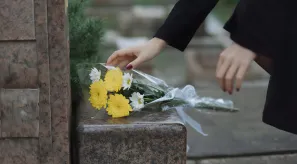Exhuming and transferring remains is a highly sensitive and regulated process in Spain. Although it’s not a frequent occurrence, certain circumstances—legal, administrative, or personal—may require it. In this article, we’ll explain when exhumation is possible, who can request it, the documentation involved, and how the process works.
When is an exhumation and transfer of remains requested?
Exhumation involves removing human remains from their burial site. This can be requested for various reasons:
Exhumation for criminal or forensic investigation
In some cases, a court may order an exhumation to clarify the cause of death or gather evidence. These cases follow strict forensic protocols and are managed by legal authorities.
Exhumation at the request of family members
Families may request to move a loved one’s remains to a different burial place—perhaps closer to where they now live or to reunite the remains with other family members. This is known as the transfer of remains from one niche to another and often requires professional help from a funeral company specialized in cremation and transfers.
Exhumation due to expiration of the burial concession
In Spain, burial niches are often granted for a limited time (ranging from 5 to 75 years). Once this concession expires, exhumation may be required unless renewed. Families can then decide to transfer the remains or opt for cremation.
Who can request an exhumation and transfer of remains?
Exhumations are governed by local and national regulations to ensure respectful and lawful practices.
Direct family members and legal representatives
Spouses, children, or legally authorized individuals can request the exhumation. In some cases, the legal representative of the deceased may also act on their behalf.
Judicial or health authorities
Authorities can order an exhumation for public health reasons or during legal investigations, regardless of family consent.
When can an exhumation and transfer of remains be carried out?
Exhumation cannot be carried out at any time. Specific legal and sanitary conditions must be met.
Burial concession period
Each cemetery operates under local regulations. Typically, exhumation is permitted only after the burial concession period ends unless ordered otherwise.
Minimum time since burial
Usually, a minimum of five years must pass before an exhumation can occur. Exceptions are made for judicial or sanitary reasons.
What documents are needed for an exhumation and transfer of ashes?
Requirements can vary by municipality or autonomous region, but the most common documents include:
Exhumation authorization request to the municipality or cemetery
A formal written request must be submitted to the local authority or cemetery administration.
Exhumation certificate
Once approved, an official certificate is issued to authorize the process.
Identification of the deceased and the requesting party
This includes the death certificate and valid ID for both the deceased and the family member or legal representative.
Funeral company agreement or authorization
A licensed funeral company must handle the exhumation and transfer. This includes signing a contract or presenting written authorization.
How is the process of transferring remains carried out in Spain?
Transferring remains may involve a move within the same cemetery, to a different town, or even to another autonomous community.
Coordination with the funeral company
The funeral company manages the paperwork, permissions, and legal compliance. At Stelae, we specialize in these procedures, offering discretion and care.
Preparation of the body and coffin
Depending on the condition of the remains, special containers or urns may be used. The preparation follows strict hygienic and legal standards.
Administrative procedures in the origin community
The originating community’s authorities must be notified, and all relevant permits obtained before any transfer takes place.
Transportation and delivery to the destination
A licensed funeral vehicle or service transports the remains to the new location for reburial or cremation in one of the available burial spaces. Currently, there are various types of burial spaces that may be suitable.
How much does it cost to exhume and transfer the remains of a deceased person?
If you're considering this step, you're likely navigating an emotionally difficult time. While costs can vary, here are some factors that influence the price:
- Distance of the transfer (within town, region, or between communities).
- Type of coffin or urn required.
- Local or municipal cemetery fees.
- Additional administrative and legal paperwork.



